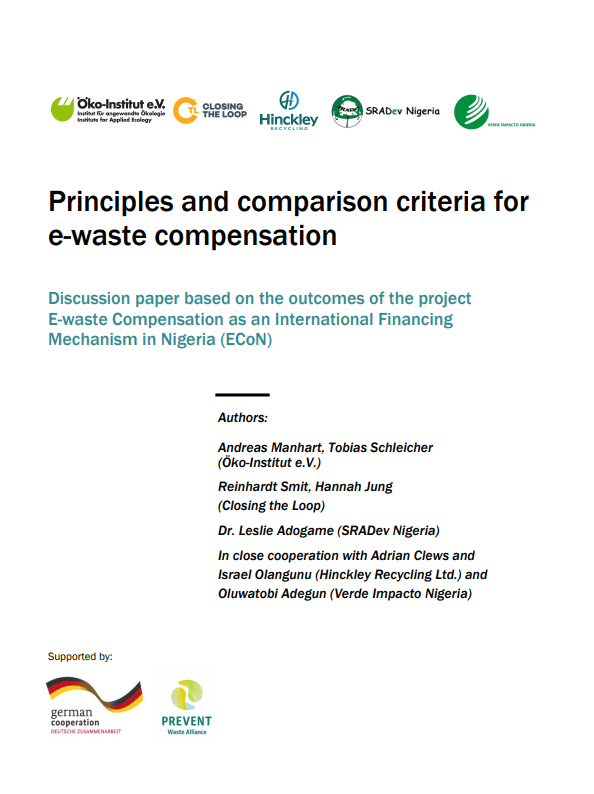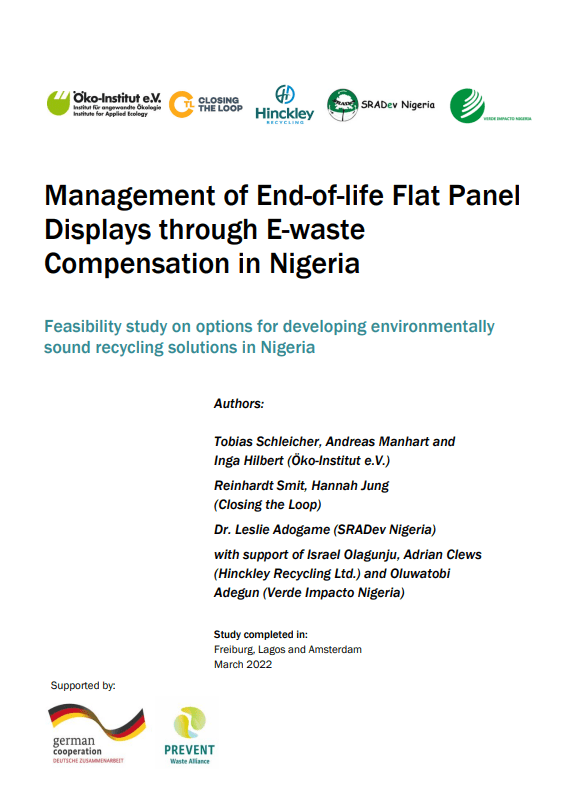Challenges
- Lack of environmentally sound e-waste recycling in many low- and middle-income countries
- Lack of a sustainable international financing model for e-waste compensation
Our Solution
The project further developed a novel international financing mechanism for e-waste (Waste Compensation) to include batteries and monitors. It created an opportunity for the electronics industry and users of electronics to actively contribute to strengthening the e-waste recycling sector in Nigeria as well as helping to further advance this concept internationally.
Download Project FactsheetResources

What is e-waste compensation?
What is e-waste compensation? Watch this 2-minute YouTube video to learn how it works!
Watch on YouTube
Principles and comparison criteria for e-waste compensation
E-waste compensation is a relatively new financial mechanism. Therefore, it is essential to define guardrails on how the concept should be implemented in practice. This paper contains 11 general principles of effective e-waste compensation.
Download
Management of End-of-Life Lithium-Ion Batteries in Nigeria
This feasibility study addresses the possibilities for responsible management of end-of-life lithium-ion batteries from domestic consumption in Nigeria.
Download
Management of End-of-life Flat Panel Displays through E-waste Compensation in Nigeria
This feasibility studies addresses the possibilities for responsible management of end-of-life flat panel displays in Nigeria.
Download
Video: E-Waste Compensation as an International Financing Mechanism in Nigeria
The project was presented at PREVENT's Circular Solutions Festival in September 2022. Watch the recording of the session to learn more on e-waste compensation as an international financing mechanism in Nigeria.
Watch on YouTube